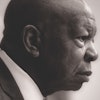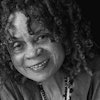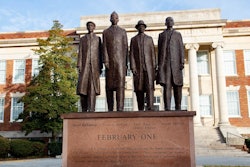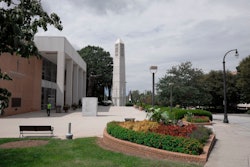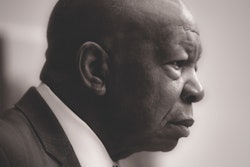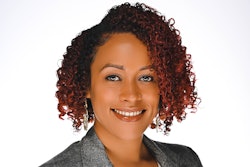On the steps of the Lincoln Memorial, thousands gathered Saturday to reflect and continue the fight for racial justice during the 60th anniversary of the historic March on Washington for Jobs and Freedom.
"We're building a unity here," said Rev. Al Sharpton, the founder and president of National Action Network (NAN), the national civil rights organization founded in 1991. "When we see Blacks and Jews and Latinos and Asians come together. ... It's a unity that we are not going to take this. We're going to march, and so thousands of us in the streets going together. They will not be able to turn back the clock."
The Drum Major Institute joined with NAN to host the event amid recent assaults on affirmative action, and diversity, equity and inclusion efforts. Organizers emphasized that the march was a continuation of the work begun in 1963 rather than a celebration of the past. 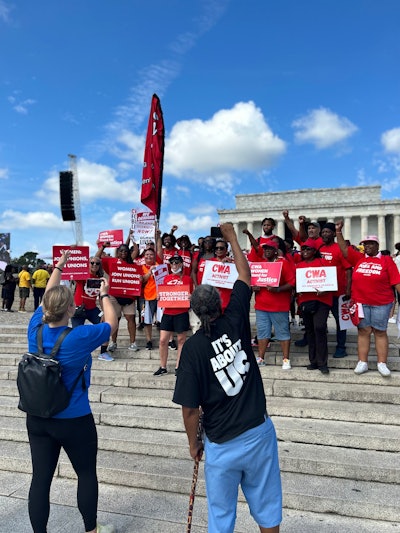 The Communications Workers of America pose in front of the Lincoln Memorial during the 60th anniversary of the March on Washington.
The Communications Workers of America pose in front of the Lincoln Memorial during the 60th anniversary of the March on Washington.
In 1963, with over 200,000 demonstrators, the original March on Washington focused on economic justice and racial discrimination. During King's "I Have a Dream" speech delivered on the footsteps of the Lincoln Memorial, the iconic civil rights leader spoke of the history of slavery and racial discrimination, focusing on the economic disadvantages placed on Black Americans.
Now, 60 years later, his descendants, civil rights leaders, and religious leaders gathered on the same steps and praised the original speakers but also said that there was an urgent need to continue the fight. They highlighted LGBTQ rights, immigration, voting rights, gun violence, and the recent court decision to overturn Roe v. Wade as priorities moving forward.
Hope Giselle, diversity and inclusion specialist and trans activist, said that one of the differences between the current March on Washington and the 1963 March is that contemporary civil rights organizers acknowledge communities and struggles that were pushed to the margins in 1963.
She said that being the first Black trans woman to speak at the march felt monumental. "It feels like the opportunity to make good on this promise that I think that ultimately [King] was making to himself and making to the people who believed in his message, which was equality and justice for all people coming together and really making sure that we can see the humanity in people," said Giselle. "And my existence and being able to be one of the folks who speak on this day embody that exactly."
